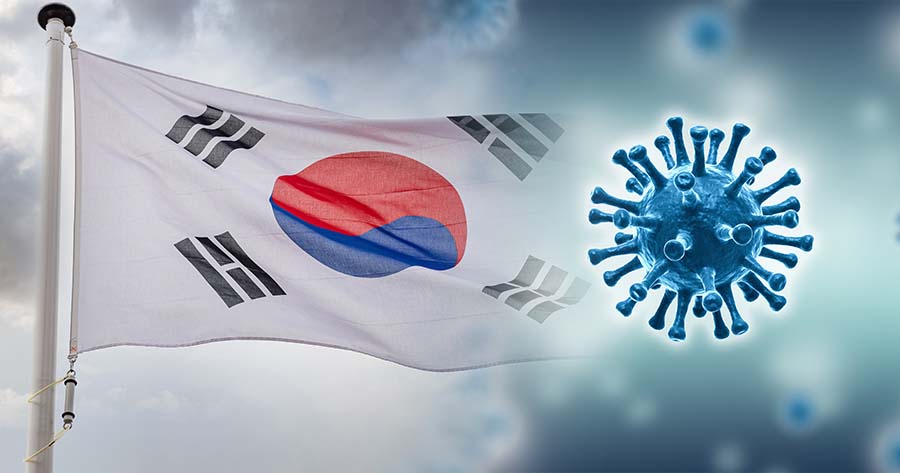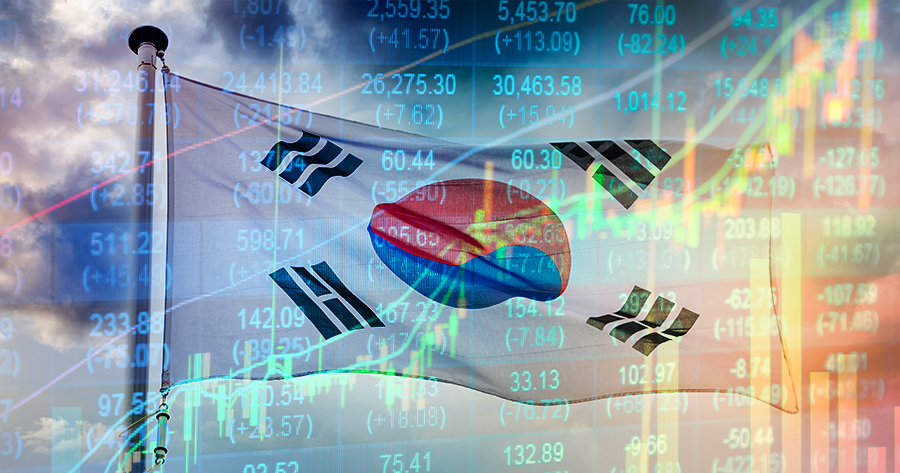South Korea’s economy is facing a potential economic slowdown in 2022, crashing hopes of recovery from 2-year-long of Covid-19 impact as the country is ravaged by a surging infection rate of over 600,000 cases per day due to the highly contagious omicron variant.
On March 16, 2022, South Korea recorded a record high of 621,328 new daily Covid-19 cases and a daily record 429 deaths.
Despite high infection numbers, the government shows no sign of reconsidering its plans to ease and remove almost all Covid-19 restrictions, such as social distancing, which is expected to be announced in coming days and weeks. Meanwhile, public opinion appears to support the moves. Public survey shows that only a few Koreans fear serious health consequences from contracting Covid-19 omicron variant.
The government has pushed its eatery curfew to 11 p.m., while stopping the mandate on vaccine passes. It also plans to drop a quarantine for vaccinated travellers arriving from overseas. Still, the government mandates masks in all public indoor and outdoor spaces.
To support its plan to ease Covid-19 measure, a government analysis of some 141,000 omicron cases reported in South Korea shows that there were no deaths among people under 60 who have received a booster shot.
According to the Korea Disease Control and Prevention Agency (KDCA), 86.6% of the population are fully vaccinated and around 63% have received the booster shot. The government is expected to treat Covoid-19 like the seasonal flu.
In the meantime, the Ministry of Economy and Finance, during the monthly economic report, said that worry remained about domestic demand recovery caused by the omicron variant spread even though the country sees solid export and constant expansion in employment.
The ministry also shows concern over rising inflation and supply chain disruption driven by geopolitical risks in Europe, resulting in uncertainties in the global financial and raw materials markets.
South Korea retail sales increased 4.5% on a year-on-year basis, but dropped 1.9% in January on a month-to-month basis while production in the services industry fell 0.3%.
Nevertheless, exports showed 20.6% growth in February from a year earlier from a robust demand for semiconductors and oil products.
Meanwhile, the consumer price index hovered above 3% in February, marking the fifth consecutive month of this high level.
Moody’s Investors Service on Thursday sharply raised its 2022 estimate of South Korea’s inflation growth rate to 3.9% from its earlier forecast of 2.8%. It also cut South Korea’s economic growth in 2022 by 0.3 percentage points to 2.7%, but over the economic fallout of the Ukraine crisis.
According to Refinitiv, South Korea Gross Domestic Product in 2022 is expected to grow 3%.





